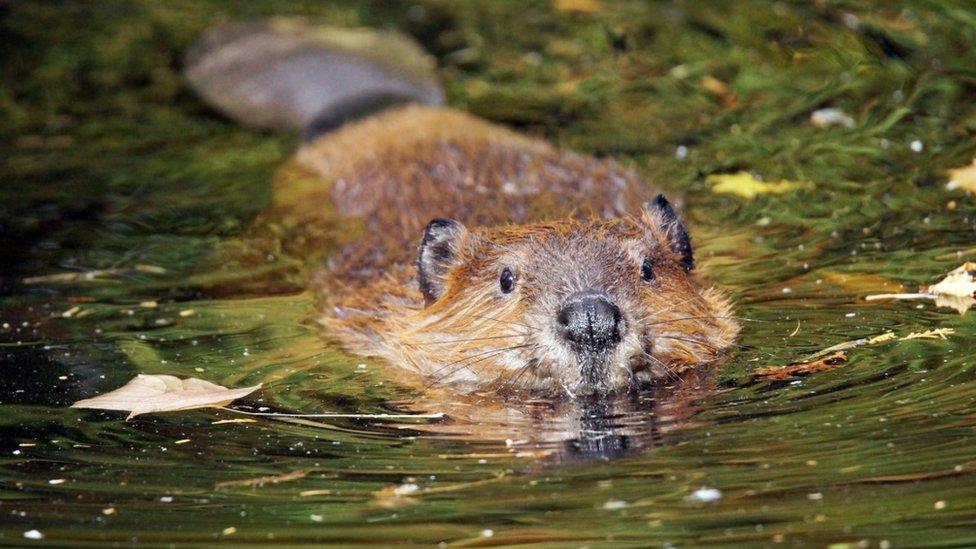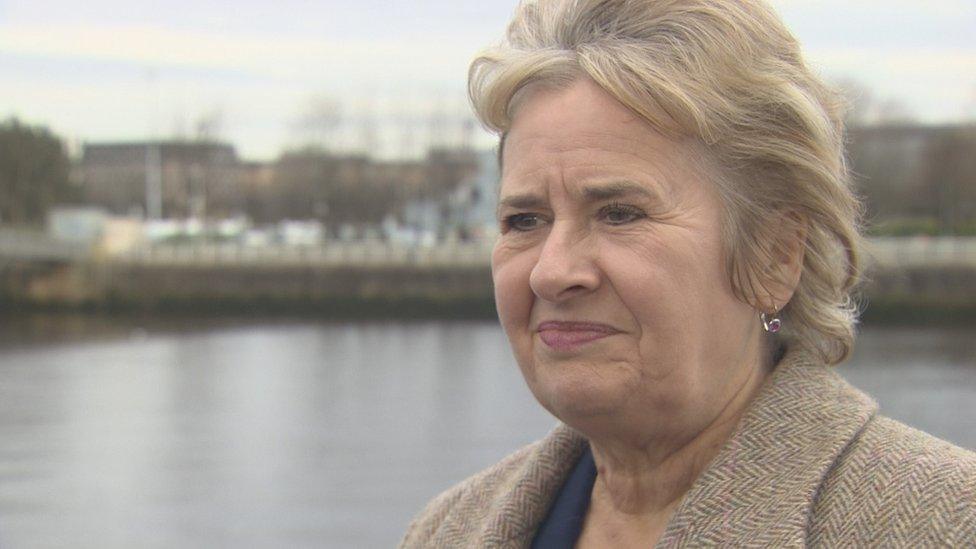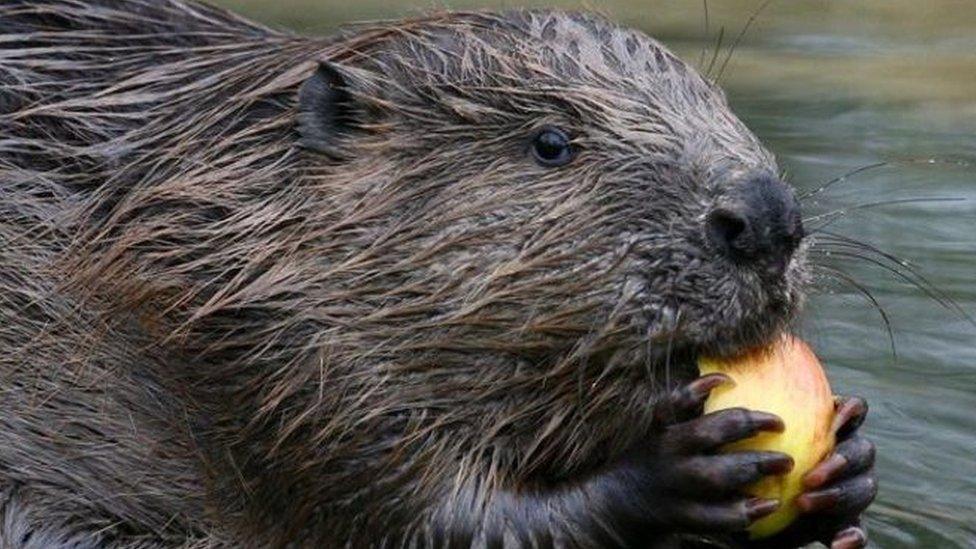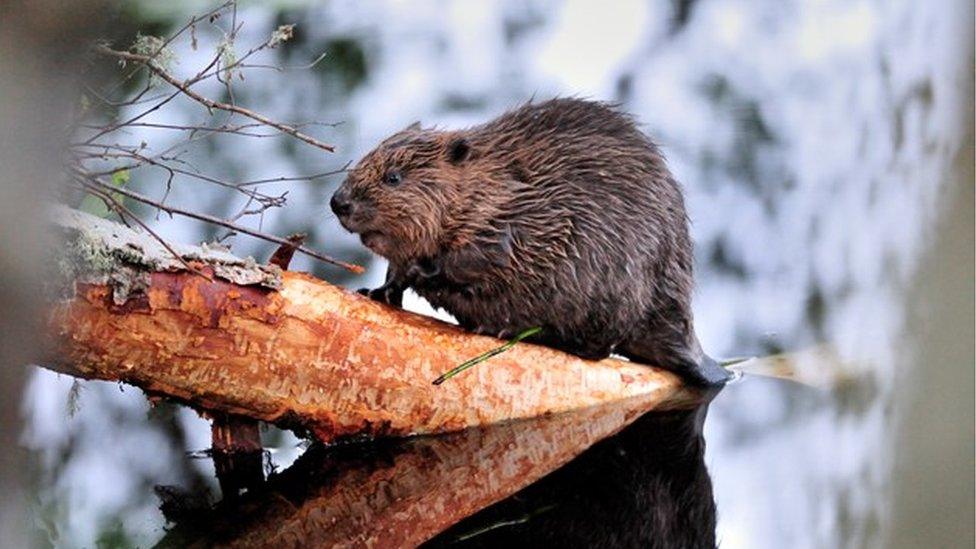Beavers to become protected species in Scotland
- Published

Beavers will become a protected species in Scotland from May, Environment Secretary Roseanna Cunningham has said.
The long-awaited and controversial move - opposed by many farmers - follows extensive wrangling over how their numbers should be managed.
Farming leaders have raised concerns about the damage caused to agricultural land from their dam-building.
Scottish Natural Heritage will issue guidance for farmers over the coming weeks.
Ms Cunningham told Radio Scotland's Out of Doors programme: "It is what people have been waiting for, it is what we said we were going to do.
"I do appreciate that for a lot of people it seems to have taken a very long time but these things do. You don't just snap your fingers and do it overnight."
Beavers have been extinct in Scotland for 400 years but were illegally released into the wild in Tayside several years ago.
They are regarded as an enemy to farmers because of their dam-building which has led to fields being flooded and crops ruined.
The latest count found the population had tripled over six years to 430 beavers in more than 100 active territories.
The technical process for adding them to the list of protected species has now been started.

Roseanna Cunningham said beavers had both a positive and negative impact on the environment
From May it will become an offence to kill, injure or capture the animals.
The Scottish Wildlife Trust has been growing increasingly uneasy at the lack of protection for beavers while a final decision was awaited.
On Friday, they reported that one had been found dead on a wildlife reserve. They believe it had died from an infection after being shot in the chest.
Protection and mitigation measures for farmers, particularly around Tayside, will be "extensive" according to the environment secretary.
She added: "I think most farmers realised pretty much a couple of years ago that this was going to happen.
"There will be control measures. We are looking at and talking to them about extensive potential mitigation measures.
"Beavers have a great impact on our environment, they are very good for biodiversity, but to pretend that there aren't some other issues, some more negative impacts, would be to be blind to the truth."
- Published22 October 2018

- Published12 October 2018

- Published19 July 2017
